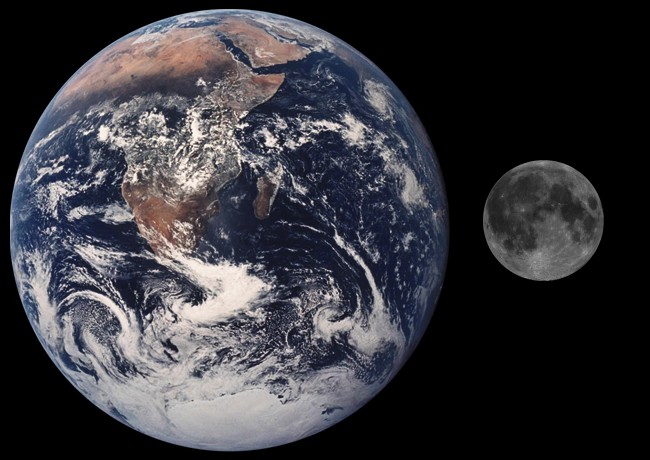Egal ob Lothar Seiwert/Silvia Sperling mit der Intervallwoche, die Esotherik mit ihren Biorhythmen oder ich schon 2003 mit dem Rhythmusmanager... immer häufiger werden natürliche Rhythmen…
 We humans boast of our achievements as the crowning glory of nature’s creation. There is hardly any area that cannot be made even better, more stylish, more convenient and more profitable through “innovation”. Driven by funding from industry, science is increasingly being drawn into this maelstrom and sometimes the results raise more questions than answers, to put it mildly.
We humans boast of our achievements as the crowning glory of nature’s creation. There is hardly any area that cannot be made even better, more stylish, more convenient and more profitable through “innovation”. Driven by funding from industry, science is increasingly being drawn into this maelstrom and sometimes the results raise more questions than answers, to put it mildly.
This is also currently the case with regard to a study on the topic of “recommended sleep duration” from China.
Here it is cheekily summarized that a recommended sleep duration of 7 hours was determined on the basis of scientific tests and evaluations. We have known this arrogance for a long time, for example when it comes to the body’s self-healing mechanisms and the immune system. Nature seems too stupid, so man has to make things clear again.
Over millions of years, nature has shaped and optimized its processes, structures and the creatures that have developed as a result. It has created a balance within itself that takes the smallest area into account. It doesn’t need planning or any kind of strategy, but … time! If something gets out of balance, it adapts according to the principle of “trial and error”, so to speak, but based on the “experience” of thousands of years. Errors are not constantly repeated, but “saved”, so to speak. In this way, a system has developed that can and will regenerate even if it is completely destroyed. This means that even if the earth is “destroyed” in the human sense, a first plant will grow again and provide the basis for new life.
Nature even “sacrifices” life itself in order to maintain the balance in the long term. In the course of evolution, countless species of fauna and flora have emerged and disappeared again. Incidentally, people should remember this in everything they do.
The Pareto principle in nature
Even if nature certainly doesn’t “know” the Pareto principle, it works according to it. There are a few, very central foundations that determine all of life, regardless of how it has developed in the past and how it will develop in the future. One basis, for example, is the principle of cell division, another is the principle of creation and decay based on it. But the circadian rhythm, i.e. chronobiology, is also the basis for every life on our planet, no matter how small … every second. Without the  day/night rhythm based on the earth’s rotations, we would have a permanent shady side and a permanent sunny side. Nature would be organized differently from the ground up. But the way the earth rotates around itself, like around the sun, has led to everything around us being organized rhythmically. Nature knows no time, no seconds, minutes, hours – only rhythms. In contrast to the man-made beat, which is precisely timed, the rhythm thrives on tolerance and individualism. If a heart always beat to the same rhythm, or if we always breathed to the same rhythm, we would be dead at the first effort.
day/night rhythm based on the earth’s rotations, we would have a permanent shady side and a permanent sunny side. Nature would be organized differently from the ground up. But the way the earth rotates around itself, like around the sun, has led to everything around us being organized rhythmically. Nature knows no time, no seconds, minutes, hours – only rhythms. In contrast to the man-made beat, which is precisely timed, the rhythm thrives on tolerance and individualism. If a heart always beat to the same rhythm, or if we always breathed to the same rhythm, we would be dead at the first effort.
Humans can do better?
And now man comes along and says: “Nature is too stupid, I know better!”
There are
- Medicines were invented instead of learning to understand and use the self-healing mechanisms,
- Things are developed so that we no longer have to move and then offer fitness so that we can move again,
- and imposed standardized rules on all people as to how things should be done in a “healthy” way, without thinking about the fact that we are all individuals.
Millions of women can no longer bring children into the world without a guidebook, “healthy” food is bought ready-made, and there are drinks and lighting to keep us awake.
Inch by inch, people are being pushed further away from nature in order to replace the gap with the “latest findings” and increasingly digitalized little helpers. There are guides, study results and rules for everything, which also contradict each other.
Oh yes … and there is time management. People cling to times, seconds, minutes and hours. This in turn creates pressure, stress, illness and heart attacks. This is precisely why there are only rhythms in nature and no rhythm.
Incidentally, in all my presentations in companies, I advocate installing a rhythm manager.
Illogic as part of the concept
It is also often paradoxical that individual specifications never take into account the interaction with other specifications.
Example school:
The person specifies that the children must be at school at 8.00am. He also pretends that these children cannot sleep in. However, it also stipulates that certain school-leaving qualifications are required in order to find a job. This qualification requirement is diametrically opposed to the school start time requirement, because in order to achieve this qualification, it is necessary for the body and mind to be able to fully undergo the natural regeneration process (sleep). The argument of “habituation” is then used to justify this. Since humans think and act in other time dimensions, habituation is usually understood as “high-speed evolutionary adaptation”. It is nothing more than a flexible emergency program that the body runs in order to be able to withstand a damaging situation for a certain period of time so that the body can continue to function. But it should not be seen as the “new normal”. After all, an emergency power generator is not designed for continuous operation, but only serves as an emergency solution until the main power source is running again.
Such mutually contradictory requirements do not exist in nature.
Millions of years for the garbage can?
Yes, and now a study from China is telling us that nature is too stupid and therefore too much sleep is unhealthy. Millions of years of development for the garbage can.
Sometimes it seems to me as if a soccer fan is sitting on the sofa with a beer bottle in his hand and talking about coaches and players.
I celebrate the scientists who show nature the respect it deserves in their research. Humans cannot pursue evolution, they can only join it.
To the topic matching articles
- Rhythmusmanagement - Das neue Zeitmanagement
- Ist die Natur zu doof?
Wir Menschen rühmen uns als Krönung der Schöpfung der Natur mit unseren Errungenschaften. Es gibt kaum ein Gebiet, das nicht durch „Innovation“ noch besser, schicker,…
